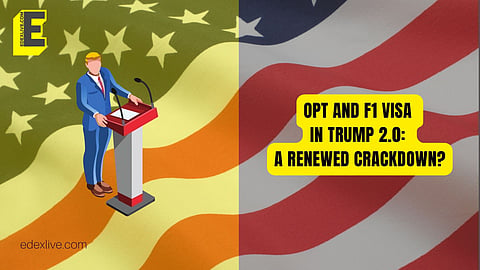

With the new Donald Trump administration, transnational scholars in the United States (US) may face increased challenges, particularly those on F1 and OPT (voluntary practical training) visas.
Trump’s former term saw tighter visa programmes, increased scrutiny of work authorisation programmes, and a strong drive for domestic hiring, all of which could resurface.
One key concern is the OPT programme, which allows transnational graduates to work in the US for over three times in the Science, Technology, Engineering and Math (STEM) fields. The Trump administration had preliminarily tried to dock its compass, citing job request enterprises for American workers.
A renewed crackdown could mean stricter adjudication, increased denial rates, and implicit restrictions on STEM OPT extensions.
The F1 visa, essential for transnational scholars, could also see heightened scrutiny in terms of allocation and post-graduation work openings. Increased vetting, implicit reductions in visa blessings, and programmes favouring employer-patronised H1B visas over OPT could discourage transnational gifts.
For aspiring scholars and professionals, visionary planning is pivotal. Exploring provisory options similar to Canada, the United Kingdom (UK), or Australia, staying streamlined on policy changes, and securing strong employer auspices will be crucial strategies. Universities and tech enterprises championing for gift retention will play a pivotal part in shaping the converse.
Transnational scholars must brace for more restrictive immigration geography and acclimatise consequently to guard their careers in the US.
(Srinjay Ray is the Director of Tutela Prep. Views expressed are his own.)
